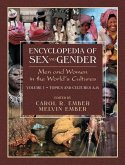This book is a detailed ethnography of traditional, predominantly upper-caste, sequestered Hindu women in the temple town of Bhubaneswar in Odisha, a state in eastern India. It elaborates on a distinctive paradigm of domesticity and explicates a particular model of human wellbeing among this category. Part of the growing literature in "third wave" or "multicultural feminism", it seeks to broaden the parameters of feminist discourse by going beyond questions of individual liberty or gender equality to examine the potential for female empowerment that exists in the context of these women's lives. Its aims are twofold: first, to represent these women in ways that they themselves would recognize; and, second, to interpret, rather than merely "translate", the beliefs and practices of the temple town such that their underlying logic becomes readily accessible to readers, even those unfamiliar with the Hindu world.
Bitte wählen Sie Ihr Anliegen aus.
Rechnungen
Retourenschein anfordern
Bestellstatus
Storno








